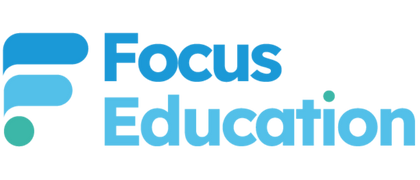
Many primary school leaders evidently see history as a strength in their curriculum given the proportion of history deep dives carried out during inspection, normally based on the headteacher suggesting this subject when asked to suggest a subject that is a strength.
This makes sense…
History is very prominent around most schools in terms of what is displayed and the project books and artefacts in classrooms. Most teachers are quite confident in teaching history even if they did not study it beyond secondary school themselves. The National Curriculum is more ‘useful’ to schools when compared with geography for example, insofar as the programme of study is explicit in what periods and civilisations schools should teach and provides examples of what schools could teach.
Mixed Picture
Many schools have also ensured the historical concepts are also being taught and are carefully planned into the curriculum. In the recent subject report it paints a mixed picture of how successful schools have been in doing this.
Effective
Chronological knowledge was identified as being effective in many schools. The report states that:
“In most of the schools visited, leaders recognised the importance of developing pupils’ chronological knowledge, and there had been significant recent work on this area. They had often planned for pupils to develop specific chronological knowledge, such as being able to order events that they had studied. They also identified opportunities to revisit chronological knowledge to make sure that pupils remembered it.”
Something the report does not identify is that teachers and school leaders need to ensure the concept of chronology, how this is taught and our expectations of the children need to reflect not just the children’s developing understanding of the past but also their mathematical understanding and vocabulary.
In many schools this is taken into account. For example, there is an awareness that timelines are actually number lines, and referring to AD and BC, or CE and BCE, is actually expecting children to effectively understand negative numbers.
But this is not always the case.
I observed children in a school who are learning about the Great Fire of London in KS1 and are being asked how many years ago it took place if it happened in 1666. Fair play to the school if Y1 children can subtract a four-digit number from a four-digit number in their heads. Not surprisingly, of course they couldn’t.
In another lesson and a different school the teacher began a history lesson in Y1 by linking the past with the visual timetable of the school day which made sense to the children and got them thinking about what had happened that morning and how we talk about events that happened in the past. Then the lesson suddenly jumped to a toilet roll being rolled out and children asked to stand at ‘10 year intervals’ along the roll going back to 1800…
These are evidently extreme examples I’ve chosen to try and make a point. Where there is a disparity between children’s mathematical knowledge and the expectation in history lessons it is often less extreme than in these cases, but still poses a barrier to children’s deep understanding.
How many children are introduced to AD and BC on a timeline before they understand negative numbers? Does it really make sense to them?
I’m not suggesting they shouldn’t necessarily encounter the terminology, but teachers need to be aware they will not understand what it really means, other than a general sense of ‘ A long, long, long time ago’, ‘Before Jesus lived’ or ‘When things were very, very old’ to quote a few responses I have had in pupil voice sessions when asking what AD/BC means and using the timeline in the classroom to inform my questioning.
Conclusion
Many subject leaders talk about teaching historical content chronologically through the age range of the school to help children’s understanding. Should they also be considering the detail and nuances of how that understanding of chronology is taught? How is the vocabulary introduced and how is it aligned with the children’s understanding of the mathematical concepts it involves?
Browse our range of History-related products here.
Book our History-related courses here.
Tim has been a headteacher with a successful track record; his last school had a reputation for innovation and their initiatives have been utilised by others and presented internationally.
School improvement has been at the heart of his career, working as an LLE, a School Improvement Partner, Professional Partner as well as an Ofsted inspector and mentor for trainee inspectors.






